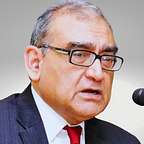From Feudal Chains to Industrial Gains: The World Situation Today
The Era Before the Revolution
Before the Industrial Revolution, which started in England around the beginning of the 18th Century, the world primarily consisted of feudal agricultural societies. In these societies, the methods and tools of economic production were backward and primitive. As a result, they generated very little wealth.
In much of Asia, the bullock or buffalo, and in Europe, the horse, was the primary means of tilling the land. There were no tractors. This feudal production method ensured that only a select few, like kings and aristocrats, could be rich. The majority lived in abject poverty and ignorance. After all, when the cake is small, very few can partake.
The Industrial Promise
However, the Industrial Revolution changed this dynamic. It introduced an era where no one in the world needs to be poor. The might of modern industry could produce enough wealth to afford everyone a decent life. With scientific organizations, society could offer everyone jobs, healthcare, education, housing, and more.
Yet, the grim reality is that 75–80% of the world’s population remains poor.
The Indian Scenario
Take India, for instance. Nobel Laureate Amartya Sen paints India as a disaster zone with “pockets of California amidst a sea of sub-Saharan Africa.” Writer Arundhati Roy describes a scenario where India’s upper and middle classes are moving away from the masses, seeking to merge with the world’s elite.
The underdeveloped countries in Asia, Africa, and Latin America, which house 75–80% of the world’s population, echo this dismal situation.
Understanding the Global Landscape
So, what is the solution to this alarming scenario? To answer this, we must first grasp the global landscape.
The world today is split into two: the developed nations like North America, Europe, Japan, Australia, Russia, and China, and the underdeveloped countries, including India, Pakistan, and other Asian, African, and Latin American nations.
The Unwritten Rule and the Chinese Model
There’s an unwritten rule among developed countries: underdeveloped countries must stay that way. This is largely due to the cheap labour available in underdeveloped countries.
Once an underdeveloped nation, China became a global powerhouse after its 1949 Revolution. A massive industrial base and cheap labour allowed China to dominate global consumer goods markets.
The Potential of India and the Developed Nations’ Fear
The Indian labour is even cheaper than China’s. If India, rich in talent and resources, builds a massive industrial base, what happens to the industries of the developed countries? They would face intense competition and potential collapse.
But will developed countries allow this? No. They polarize societies through their agents, spreading communal hatred. Many political leaders in underdeveloped countries act as puppets to their developed counterparts.
A Call to Action
However, for underdeveloped countries to break free from the chains of poverty, they must industrialize. Their interests clash directly with those of developed nations.
The solution? The people of underdeveloped countries must wage significant united struggles under modern-minded leaders. These battles will lead to rapid industrialization, ensuring a high standard of living for all.
The Power and Plight of Poverty
Poverty is life’s harshest reality. It erodes human rights and dehumanizes individuals, reducing them to mere survivalists. The impoverished are rarely respected. When China was weak, it faced the brunt of Western prejudice. Today, as a powerful nation, it commands respect.
Looking Forward
The 21st century is set to be defined by the struggles of the impoverished, striving for justice, decent lives, and a high standard of living.
